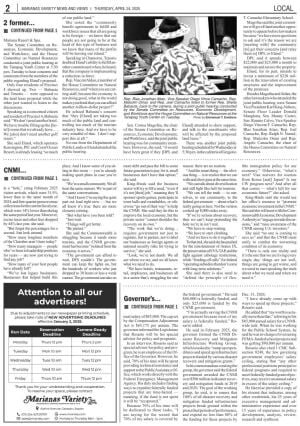
The German share price index DAX graph is pictured at the stock exchange in Frankfurt, Germany, April 14, 2025.
REUTERS
LONDON/SINGAPORE (Reuters) — European and Asian shares rose on Tuesday after President Donald Trump touted possible tariff changes on autos, while U.S. Treasuries steadied, having staged a recovery the day before following last week's historic selloff.
Trump said on Monday he was considering a modification to the 25% tariffs imposed on foreign auto and auto parts imports from Mexico, Canada and other places.
That followed Friday's move to exempt smartphones, computers and some other electronics from Trump's "reciprocal" tariffs.
"Markets have been itching for any signs of positivity," said Dan Boardman-Weston, CEO and CIO at BRI Wealth Management.
"The announcement about electronics and phones over the weekend was helpful for sentiment and you've seen markets rally a bit in the last few days."
Investors took whatever good news they could get after the recent heavy selling across markets, and pushed shares higher.
The pan-European STOXX 600 rose 1% on Tuesday, led by the autos and parts sector whose gauge jumped 2%.
Germany's DAX rose 1% and Britain's FTSE 100 index gained 0.8%. France's CAC 40 was up just 0.2%, weighed down by the luxury sector after disappointing earnings from LVMH.
U.S. futures swung between losses and gains to last trade little changed after Monday's advance on Wall Street, its second straight daily rise for the first time since Trump announced his reciprocal tariff plan on April 2.
Nasdaq futures were up less than 0.2% and S&P 500 futures were up 0.1%.
"When we start to see some of these exemptions flow through for particular sectors, it helps markets think about tariffs as something that aren't necessarily going to be all-encompassing, and that they might actually be reprieved," said Illiana Jain, an economist at Westpac.
In Asia, MSCI's broadest index of Asia-Pacific shares outside Japan was up 1.1%.
Japan's Nikkei rose 0.8%, with shares of auto companies like Toyota and auto parts maker Denso among the top gainers.
Analysts remained cautious, however, as uncertainty over Trump's trade policies, and his constant back-and-forth on tariffs, continued to cast a cloud over markets and the global economic outlook.
In a reminder that markets are not yet out of the woods, China ordered its airlines not to take any further deliveries of Boeing jets, Bloomberg News reported on Tuesday, citing people familiar with the matter.
Bond yields steady
U.S. Treasuries held onto most of Monday's gains on Tuesday after a manic selloff last week that led to the largest weekly increase in borrowing costs in decades. Bond yields move inversely to prices.
The benchmark 10-year yield was up 2 basis points (bps) at 4.387%, having fallen nearly 13 basis points in the previous session.
The two-year yield was up about 3 bps at 3.864% after sliding 12 bps on Monday.
Some analysts said comments from Federal Reserve Governor Christopher Waller contributed to the fall in yields.
He said on Monday that the Trump administration's tariff policies were a major shock to the U.S. economy that could lead the Fed to cut rates to head off recession even if inflation remained high.
Atlanta Fed Bank President Raphael Bostic, meanwhile, suggested the U.S. central bank should stay on hold until there is more clarity.
Markets are now pricing in about 83 bps worth of monetary policy easing by the end of the year, with most expecting the Fed to hold rates next month.
In currencies, the euro softened slightly but remained close to its three-year peak against the dollar at $1.1328, as the U.S. unit remained under pressure.
The dollar was near its recent 10-year low against the Swiss franc and fell to a more than six-month low against the pound.
"The U.S. exceptionalism narrative that had previously underpinned the surge in U.S. equity markets over the past couple of years, and boosted the dollar, has lost much of its shine," said Jonas Goltermann, deputy chief markets economist at Capital Economics.
"It also appears that at least some investors no longer consider U.S. markets as a good safe haven in the current situation."
Oil prices dipped after the International Energy Agency cut its oil demand forecast, having earlier been boosted by the latest tariff exemptions floated by Trump. Brent crude futures slipped 0.4% to $64.62 per barrel while U.S. crude was down 0.5% at $61.26.
Spot gold rose 0.3% to near its record high at $3,219 an ounce.

















